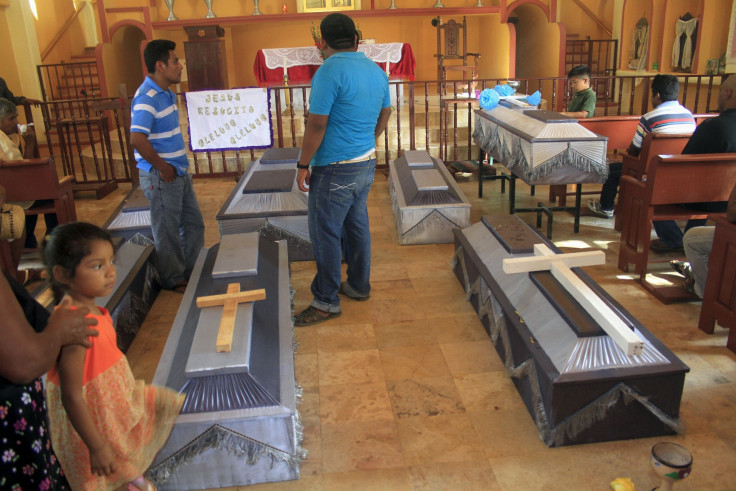
At least 13 and as many as 16 were left dead on Saturday on the eve of Mexico’s midterm elections near the resort town of Acapulco, Guerrero. Officials say that the violence was not related to the elections that took place across the country that day. They also didn’t deny or confirm reports that the fighting was related to organized crime violence that has plagued many other parts of the country. Instead, the combatants appear to part of rival “civil defense” groups representing indigenous communities in Guerrero. They join a number of both legally and illegally armed groups -- criminal gangs, military police, local police, self-defense organizations -- that are complicating a delicate security situation in Mexico.
Overshadowed by the Mexican midterm elections, the skirmish received little attention by the press. (A reporter for the AFP broke the story who witnessed the aftermath of the attacks). Yet in a country where paramilitary groups are taking increasingly large share of the state’s responsibility for security against the bubbling cartel threat, how civil defense groups use their weapons is an evermore important subject. Reuters reports that one of the groups involved in the confrontation has links to the Jalisco New Generation cartel, a narco-trafficking organization that operates in multiple states. If true, it could implicate a once trusted movement of anti-cartel actors in the overall security failures of the state.
“We closed the door and threw ourselves on the ground,” a Xolapa resident, who wished to remain anonymous, told Nacion. “We were afraid they’d hear the cries of our kids and might come and kill us,” he said, adding that the shootout had lasted about 20 minutes, temporarily paralyzing the Acapulco suburb of about 500 residents.
The fighting started around 5:45pm local time on Saturday, according to local government officials. Mexican authorities say that the argument arose over patrol duties, a territorial dispute over who should cover the Acapulco-Chilpancingo region, and that the dispute involved an exchange of words at least days before. State-level prosecutors are investigating the case. A member of one of the groups told CNN that their rivals “Carried 22 caliber rifles and scopes and executed everyone,” at a meeting to discuss the territorial disagreements. The other group has yet to issue a statement. Both have similar names. No citizens outside the rival groups were reported injured during the attack.
The two groups -- the Front Of Organizations Of The State of Guerrero (Fodeg) and the United Front For Security And Social Development Of Guerrero (Fuseg) -- are not “vigilantes,” in the sense of having no legal authority. Both groups are legal militias recognized by the government under laws that allow indigenous groups to form armed patrols. Despite this, many U.S. outlets have reported that the groups are “vigilantes.” Most Mexican outlets refer to them as “civil defense” groups, “armed civilians” or “communal police.” With senseless violence and without restraint, those differences may become irrelevant, making them just one more armed group terrifying the local population and compromising public safety.
© 2025 Latin Times. All rights reserved. Do not reproduce without permission.




